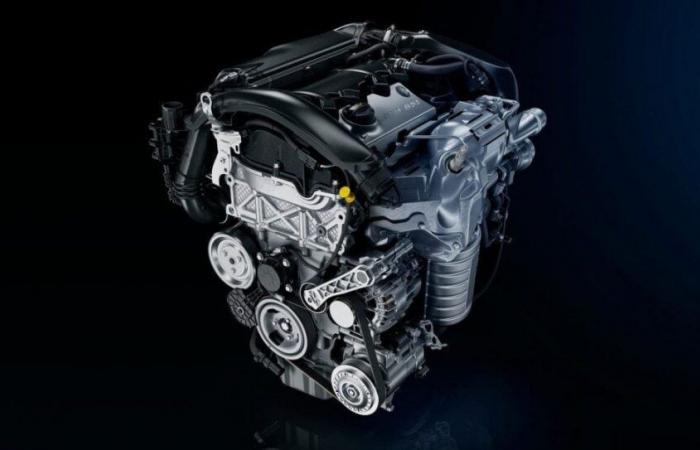A small revolution took place at Peugeot at the beginning of September, with the disappearance of the PureTech engine. Or rather its name…
With a wave of a magic wand, Peugeot made its most produced petrol engine since 2012 disappear at the beginning of September. On the configurator, there is no longer any trace of the slightest PureTech to power any model of the brand. As you will have understood, this is in reality a sleight of hand operated by Stellantis and which aims to turn the page on this 3-cylinder with dubious reliability, which will not have done it any good. Citroën and DS will come to it in turn and as Opel – in the PSA galaxy since 2017 – has never used this name, nothing changes for it. The fact remains that this small change in form may not shake up the substance of the matter.
Good points at the start
In 2012, when Peugeot launched this new 3-cylinder 1.2 turbo, The French are following the trend of down-sizing, this reduction in cylinder capacity, or even in the number of cylinders, and the systematic use of supercharging to compensate for any power deficit. Main objective: to save CO2 emissions during homologation and to reduce the various penalties for registration. Right from the start, this little machine does the job and we applaud the performance of the models equipped with it. Not everything is rosy when it comes to this “3 legs”, whose scraping sound and vibrations are not always well contained. But in terms of acceleration, torque and efficiency, the result compared to the old 4-cylinder 1.6 naturally aspirated VTi is clear. And so many good reasons to decline this new PureTech in all the body styles of the great Peugeot-Citroën house, from 68 hp in atmospheric to 155 hp with the help of a turbocharger. The most widespread being the 110 and 130 hp versions. From 2015 to 2018, this PureTech was even elected engine of the year by the 70 journalists of the jury of the eponymous election.
Then the fall
But, twelve years later, the fruit of the harvest is not what was expected. The reliability problems started earlier for the ex-PSA which became Stellantis. In 2020, more precisely, the year of the first massive recall concerning the timing belt, the premature crumbling of which results in engine failure or, at best, the deterioration of other parts. Added to this distribution problem was also an overconsumption of oil in many cases. And the general impression of an engine that was defective from the design stage, which pushed many consumers to take legal action, which is still ongoing. Stellantis may have redesigned the distribution of the 1.2 turbo in 2023 by opting for a chain instead of a belt, but the reputation of this 3-cylinder remains tarnished. It is not certain, for the time being, that abandoning the historic name will restore the image of the new 136 hp variant, and we will have to wait a few years to see how it will stand the test of time. In the meantime, the value of second-hand French cars equipped with the old PureTech has continued to fall. To the point that Stellantis itself is buying up competitors from Renault and Volkswagen at a lower price…

A passionate automotive journalist for almost 10 years, I take great pleasure in deciphering the news of this fantastic object of mobility and freedom. Without forgetting to talk about motorcycles, another deviation…
Rate this item
4.3/5 ( 21 votes)
Published on 09/19/2024 at 5:46 p.m.






